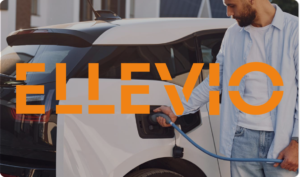Table of Contents
HR #metoo – Aftermath or Opportunity?
Spreading like a wildfire initiated by public figures, #metoo burned its way through society, organisations, and positions, regardless of industry or sector. Sexual harassment was a taboo topic before women found the courage to speak up about their own incidents.
Was it sense of unity that led them to speak up, or did we just miss out asking them?
Months after the wave started in October 2017, HR began to realize that the #metoo campaign was quickly becoming one of the strongest global movements of its kind. There is no doubt that social well-being strongly correlates with engagement in the workplace. In fact, the economical damage caused by employee disengagement is disastrous—costing companies up to $550 billion a year. The good news? Smart solutions will save you the money.
We need more insight
However, the magnitude of the campaign’s roots aren’t fully grasped. According to a 2014 report by the European Agency for Fundamental Rights about 50% of European women have experienced some form of sexual harassment at least once in their lives. These numbers vary greatly between European countries— the highest numbers in the Nordics with Sweden and Denmark reporting 80-100%.
On the other hand, some statistics related to sexual harassment in the workplace are a bit vague. A U.S.-based study conducted by EEOC suggested that approximately 25-85% of women have at some point in their life reported sexual harassment.
After looking at the statistics many questions may arise: What do Europeans consider sexual harassment? How can this highly sensitive data be detected? What are the most effective measures that can help fight (and prevent) issues? Does it happen in my organisation?
Unfortunately, the numbers may let you suspect: Yes.
The company’s role in protecting human rights
It’s common sense that, fundamentally, we need to feel secure to work towards our organisation’s common good. Thus, it is not a new phenomenon that many companies practice:
- Regular training
- Involving experts or unions
- Formal and informal reporting mechanisms
- Election of workplace reps
As if it wasn’t disappointing enough to discover that research found these methods largely ineffective – reported harassment historically has shown retaliation in 16% of the cases. This means that victims were better off remaining silent.
Does this imply HR failed? Not necessarily. Various consistent sources have shown that the #metoo campaign can be useful for HR. So there is light at the end of the tunnel…
Turn any outcome into opportunity
The #metoo campaign triggered a lot of fear especially among those working with human resources. However, closing our eyes is never a viable solution. On the contrary, a problem gives us the opportunity to learn and grow. So let’s face the truth and start by reaching out.
Supporting companies took this first but essential step forward in November 2017 when Netigate offered a free #metoo survey based on an elaborated template addressing the issue. Within the first two weeks, more than 75 companies used Netigate’s service to get a clear picture of sexual harassment in their organisations. The survey was completely anonymous, and it encouraged participants to give their honest feedback.
And what if…
… the results turn out to be unpleasant? Well, now you know that there is some work to do, and you know where to start. Even if you feel “left alone in the mess”, it is good to know that you have a resource you can count on.
Netigate can help you analyse data and highlight areas that require your attention to resolve the issues and focus on employee engagement.
In addition to collecting data, employee surveys convey so much more: They are part of the awareness-building process and are aligned with consistent anti-harassment messages from the top and support your employer branding. The #metoo campaign certainly required timely action. Is there time to wait until governmental policies are in place? Maybe, but there is a tool available right now, so why wait?
-
Netigate Marketing
-
Netigate Marketing
- 3 min read
- .





